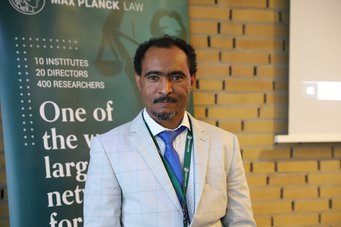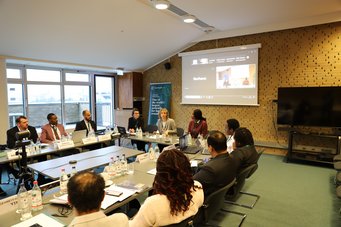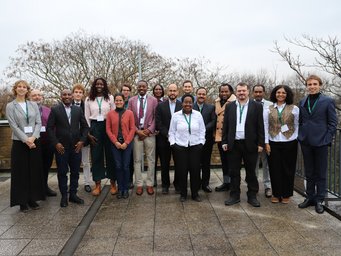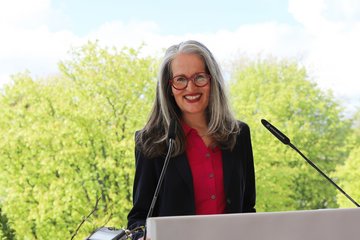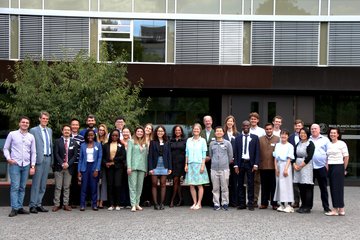Conference on Trust and Law in Africa
- Date: Dec 2, 2024
- Location: hybrid event
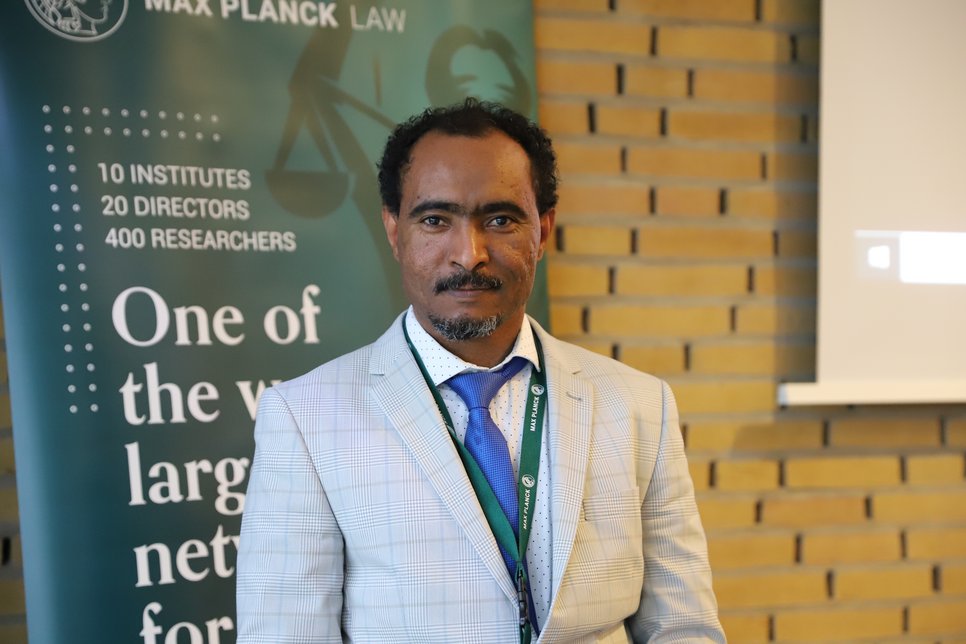
The conference was organised by the Max Planck Institute for Comparative and International Private Law, the African Law Initiative of Max Planck Law and the African Law Association. The papers were divided into five panels. Panel one explored social trust, political trust, political economy, and resource management in Africa. Ignacia Gonzalez Piedra explored the mining industry in Ghana. He outlined the diminishing trust in government officials and how it complicated the mining industry in Ghana. Ange Dorine Irakoze presented a paper titled “Reconfiguring Trust in Land Management in the Extractive Industry in Africa”. He argued that free prior informed consent (FPIC) operationalisation in Malawi lacked substance as it had been carried out only to meet formality requirements that international organisations have imposed. The government has no appetite to listen sincerely and integrate or revise its plans to address the local community's concerns. The frequent disregard for the community's comments had eroded the local community's trust in the government. Dr. Zbelo Haileslassie Embaye explained how the conflict in Ethiopia’s Tigray region, marked by aggravated distrust in land distribution and resource allocation, was becoming one of the reasons for instability in the area.
The second panel highlighted the link between trust research, corporate governance, and commercial laws from an African perspective. Dr. Nebert Chirwa and Teuka Tembo examined how the public trust doctrine that the constitution of Mali has recognised can help to improve corporate governance and stewardship in state-owned enterprises. They indicated that the executive branch of the government had unbounded discretionary power to disregard necessary regulations that ensure the effective utilisation of natural resources. This had given enterprises a free hand to abuse the country's shared resources. The public enterprise had failed to meet its social and economic objectives. They argued that the public trust doctrine should be applied to these enterprises as stated in the Constitution.
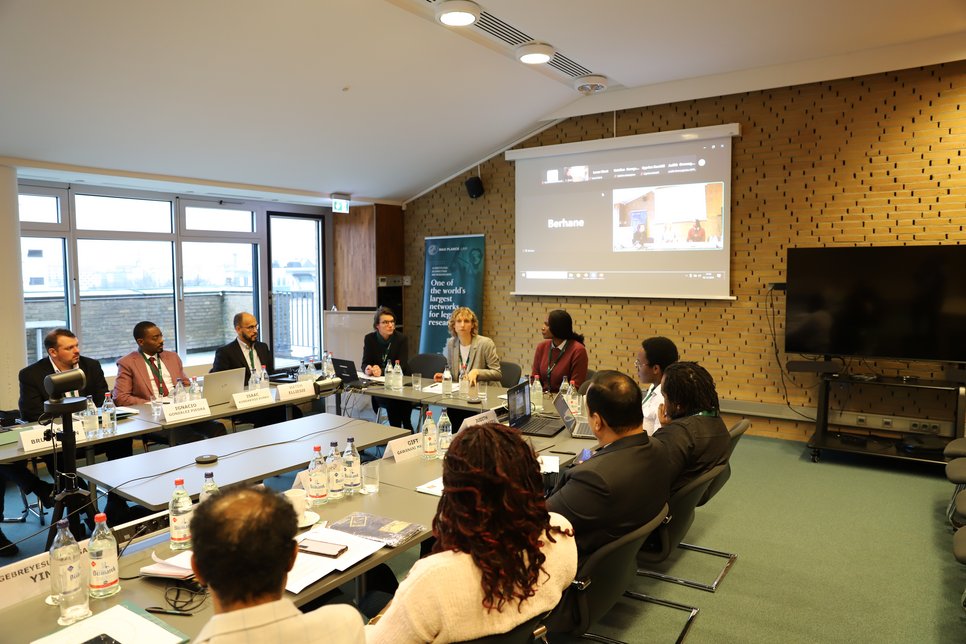
Dr. Kweku Ainuson and Barnabas Abisa provided empirical evidence from Ghana that showed the growing distrust in state-owned companies. Based on their findings, they recommended that the government to provide an institutional and regulatory framework that enhances the people’s trust so that these enterprises can deliver their social and economic promises to the people. Prof. Neha Singh explored how the lack of mutual trust among African countries has hindered harmonisation or cooperation in enforcing foreign judgments. Based on a preliminary legal audit, the lack of collaboration is hindering trade and investment on the continent.
The third panel focused on legal frameworks for inclusion and exclusion from the African perspective. Lea Schumbert’s presentation, which explored Africa’s historical exclusion from the conceptualisation of international criminal laws, indicated the limited role African intellectuals and nations have in international criminal law-making. She outlined the recent positive development while pointing out that many challenges remained for Africa to fully contribute to framing international criminal law that embeds African values and principles.
Brehane Gebregziher’s presentation brought to light the role of religious leaders in peace-making based on the evidence from Tigray. He indicated that religious leaders would prevent war and conflict if they remained independent. He emphasised that the Tigray people had lost their trust in some religious leaders in Ethiopia because of their negative role during the war. Dr. Sophie Nakueira explained how distrust among different actors in Uganda affected the well-being of refugees. Her ethnographic research uncovered low mutual trust among refugees, humanitarian workers, and the government. Panel four brought to the discussion two papers examining post-conflict judiciary and transitional justice in Africa from a trust research perspective. Dr. Jonas K. Sindani, Emmanuel A. Bigosi, and Alin B. Cibambo explored the dynamics of trust in the litigation of mass crimes in the Democratic Republic of Congo. The presenters revealed the views of the accused on the trial system. Their findings discovered that the lack of effective participation of the local people in the formulation of the justice system and the modality of punishment has negatively affected the confidence of the accused in the trial system. Mekonnen Fisseha and Dr. Gebreyesus Yimer’s paper explained the role of trust in transitional justice. They outlined that the growing ethnic distrust was a primary challenge in implementing transitional justice principles in Ethiopia.
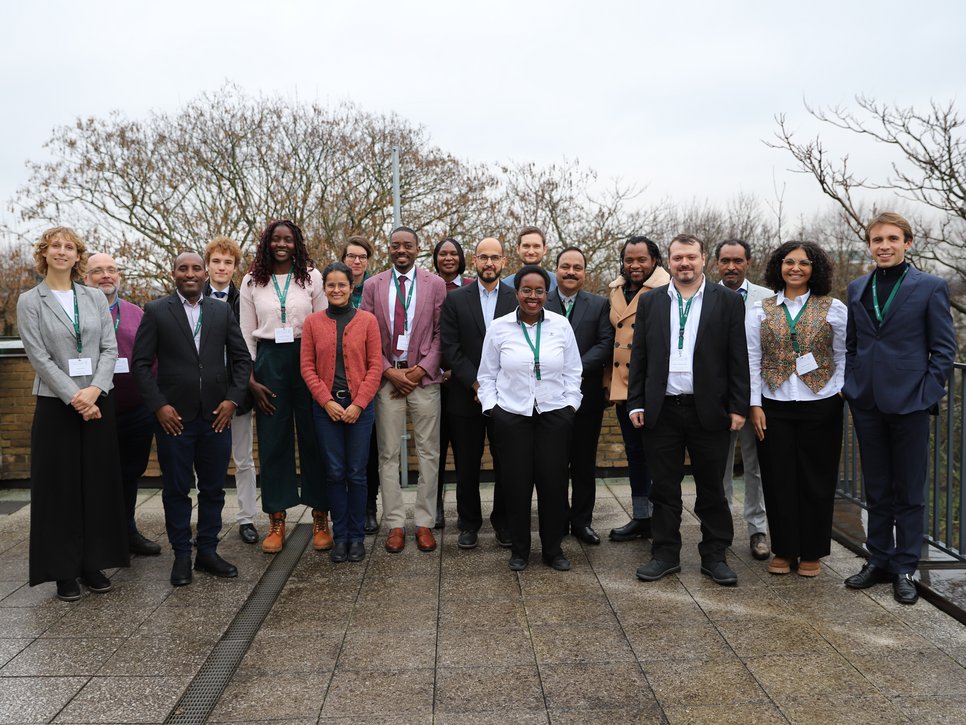
Panel five focused on decolonial studies and trust in Africa. Three presenters explored the functional relationship between colonialism and development in postcolonial states. Prof. Pradeep Kulshresha and Dr. John Kanya Musembi spoke on colonialism and political trust based on their comparative research in India and Kenya. They established that the impact of colonialism was still visible in the legal system of these countries and that it affected their development trajectory. Dr. Cyprian Kambili’s paper focused on theorising trust in law and development in the postcolonial states of Africa. He employed the economic sociology of law (ESL) methodology to explore how interpersonal mutual trust impacts African development. He stated how the development projects that donors have modelled had failed to obtain the local community's trust, and the lack of confidence in return limited the success of these projects. Continuing the same logic, Gift Gawanani examined how free prior informed consent (FPIC) is applied in Malawi. He indicated that the lack of genuine and honest implementation of the principle had eroded the trust of the Indigenous people in the government as they now consider the FPIC as a formal procedure that fails to consider the local community as essential decision-makers in the process.
Generally, the conference uncovered that trust research is relevant in African legal studies. Researchers from diverse backgrounds explored the interdependence and complex relationship between law and trust and examined how that relates to the notion of laws in Africa. We expect more research to be conducted on this topic to help us better understand law and society on the continent.
Images: © Max Planck Institute for Comparative and International Private Law
